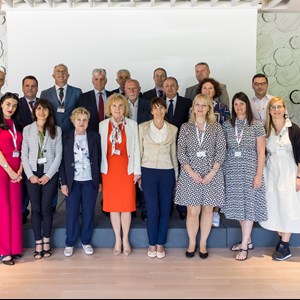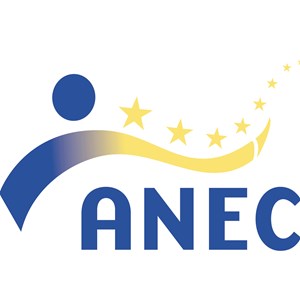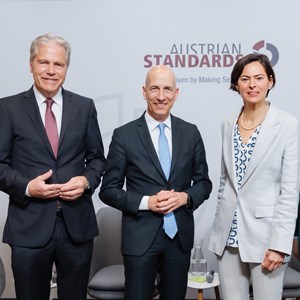NEWS

As part of the European SME Week 2024, between 25 and 29 November, the Croatian Standards Institute (HZN) invites all entrepreneurs to its Doors Open Days and grants discounts on the purchase of standards.

The jubilee year for the Institute for Standardization of Serbia (ISS) was marked by numerous events, culminating in a Gala Ceremony held on 10 October 2024.

The 2nd RAST Conference, held on October 14 at the Brdo Congress Centre, once again demonstrated that standards are key to shaping a safe, quality, and sustainable future. Experts and representatives from various industries discussed how artificial intelligence and other new technologies are transforming our world and the role that international standards play in this process.

On Thursday and Friday, July 4th and 5th, SIST (Slovenian Institute for Standardization) hosted the Balkan Conference of Standardization Bodies at the Bled Rose Hotel. The event brought together representatives from the national standardization bodies of various Balkan countries, including Albania, Bosnia and Herzegovina, Bulgaria, Croatia, Kosovo, Montenegro, North Macedonia, and Romania. The participants exchanged best practices, discussed common challenges, and showcased how individual national bodies operate and promote the importance of standards.

ANEC submitted its comments on the European Commission’s public consultation on the evaluation of Regulation (EU) 1025/2012 – the Standardization Regulation, which is currently open until 25 July.

This year, the Institute for Standardization of Serbia (ISS) celebrates its 90th anniversary. With the aim of emphasizing the importance of standards and their application in all areas of life, both nationally and internationally, ISS has started the year with numerous activities. Since January, ISS has participated in several international fairs organized in Belgrade. So far, it has presented itself at the Textile, Tourism, Construction and Technical Fair.

At the end of May, SIST had the pleasure of hosting colleagues from the Institute for Standardization of Montenegro (ISME). During their visit, SIST engaged in a series of productive sessions, sharing best practices and tackling the various challenges currently facing the field of standardization.

As the Institute for Standardization of Serbia (ISS) begins the celebration of the significant milestone of 90 years of standardization, it is with great honour that they announce the issuance of a commemorative postage stamp, symbolizing the inauguration of the 90th anniversary celebration. This gesture not only signifies the beginning of the jubilant festivities but also serves as a testament to the enduring legacy and contributions of ISS’s institution over the past nine decades.

The 26th Energy Days took place at the Grand Hotel Bernardin in Portorož, Slovenia, on 16 and 17 April. The energy conference, entitled "How to achieve a new, breakthrough industrial strategy in Slovenia", focused on energy and material efficiency, new resources and technologies.

Austrian Economic Minister Martin Kocher, CFO Silvia Angelo of ÖBB Infrastruktur and PORR’s CEO Karl-Heinz Strauss in key dialogue at Austrian Standards